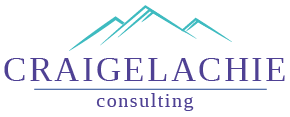Interviews: 5 things to consider

In my coaching practice I regularly work with individuals who are looking to make a step change in their career, either within their current organisation, moving to a different organisation or changing careers completely. Every individual and situation is different but usually there is an interview to prepare for somewhere in the coaching assignment. As ever in coaching, I don’t provide the answers – those must come from the coachee. But here are five things I prompt the coachee to consider.
Two-way process
Too many people think of an interview as somewhere you, as the candidate, must ‘sell yourself’ to the hiring organisation, going so far as to say what you think they want to hear, rather than what you actually believe. That should not be the case. It should be a discussion where both you and the interviewer(s) seek to establish whether this is the right role and organisation for you. Insightful questions and authentic answers are key to getting this decision right for both you and the hirer.
What’s the essence of the interview?
Both you and the hirer should be looking to establish 3 main things:
- Can you do the job? In short, do you have the technical skills and capabilities to deliver the requirements of the role? Not necessarily all of them, but most of them, with the potential to develop the others needed.
- Will you do the job? What is your motivation for wanting this role in this organisation? Does what you have learned about the role excite you?
- How will you fit in? How do your values align with those of the organisation and how will your personality gel with the team or bring diversity of thought?
Different types of interview
Organisations now use different types of interview, so be sure to ask in advance which type you are facing in order to prepare appropriately. These include:
- Traditional interview, either 1-2-1 or with more than one interviewer.
- Behaviour-based interview where you are asked to describe in detail how you have dealt with a certain situation in your previous roles that is similar to the ones you will be encountering in the role for which you are interviewing.
- Competency-based interview is used to assess soft skills and interpersonal competencies where the hirer will ask you to provide examples of times you evidenced those skills.
- Case interview where you are given a situation and asked to describe how you would handle that situation and/or solve a business problem (this style of interview tends to be used by consulting firms).
In particular, having in mind impactful examples which showcase your strengths and experience is helpful so that you can focus in the interview on an engaging delivery of your stories rather than having to rack your brain on the spot for an appropriate example.
Prepare for the questions you expect the interviewer to ask
Yes, some interviewer(s) like to ask funky questions which you can’t anticipate (I was once asked “if you were a dessert, what would you be?” – answers are welcome in the comments!). However, for the most part, there are certain questions which regularly appear notwithstanding the type of interview, and you should consider in advance how best to answer them. As examples:
- “Tell me about yourself”. The interviewer does not want you to recite your whole CV! Prepare a shortstatement which ideally hits the 3 points above – can you do the job, will you do the job, how will you fit in? If there is something unique about you, here’s a great time to mention it as it will open up the conversation.
- “What are you most proud of in your career?” Have a story ready to tell, succinctly, with specific details. Make sure the qualities or skills it highlights are relevant to the role for which you are applying. Use the word “I” not “we” or “the team”: this is not the time for modesty – the hirer wants to know about your achievement.
- “What are your weaknesses?” Hirers want an honest answer from you – not the jokey “I work too hard” or “I’m told I’m too modest”. Prepare an example of something you are genuinely working on: this demonstrates both self-awareness and commitment to self-development.
- “Why do you want to work for this organisation?” This is an opportunity for you to show that you have done your research into the organisation and have considered why it is a good fit for you – maybe your values align, you are a fan of their culture, or you admire their products/ services.
What questions do you want to ask the interviewer?
This interview is your main opportunity to find out things about the role and the organisation before you join, so make sure you have prepared several questions about the things which are important to you. If you can ask them in the flow of the interview – great, it makes this a genuine conversation. If not, be sure to ask them at the end as this highlights your commitment to finding the right role and organisation for you. Coachees never fail to delight me with insightful questions they come up with. Recent examples include:
- A coachee who wanted to deeply understand the role and how it aligned with her skills and values asked: “What have past employees done to succeed in this role?”
- A customer-centred coachee asked “Could you give me an example of a recent change the organisation introduced on the back of customer feedback?”
- Wanting to gain greater insight into the organisation’s values and culture, one coachee asked his interviewer “What do you personally most like about working for this organisation?” People love to be asked for their opinions, and interviewers are no different; this question can also create a connection.
Whilst as a coach I prompt you to think, rather than provide answers, I will gift you one suggestion. If you run out of questions because during the interview you covered the ones you prepared, here’s a good ‘catch all’ which covers questions you did not think to ask:
“Is there anything we haven’t covered yet which you think it is important for me to know about working here?”
In the same spirit, in the comments feel free to add anything which I have not covered here which you think it is important for candidates to consider about interviewing!
